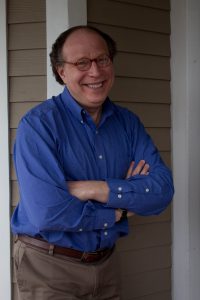Most cancer research begins in laboratories where scientists seek to understand why normal cells mutate into cancer cells and then travel, wreaking havoc, elsewhere in the body.
These basic scientists are generally more familiar with test tubes than with cancer patients.
Nationally, there’s growing interest in building partnerships between scientists and patients. For example, review panels that fund cancer research often include patient advocates. These advocates don’t assess the technical merits of the science, but do assess the potential impact of the proposals.

Speaking from personal experience, I know that scientists and patient advocates are awkward with each other at first. We come from such different worlds.
I recently attended a national conference for cancer researchers. Some of the younger scientists (generally in their mid-to-late 20s) had never even met a cancer patient before.
In Ithaca, we’re connecting scientists and patients while the scientists are still in training. Doctoral students engaged in cancer research at Cornell have the opportunity to meet people personally affected by cancer here in our community.
For the students, it’s an opportunity to learn about the human side of cancer. Many report that connecting with patients motivates them. They understand that cancer is more than a biological process that exists in a lab.
And those of us with cancer have a vested interest in nurturing and motivating the next generation of cancer researchers. We want them to cure our cancers and to do so with minimal side effects.
The collaboration that we’ve created here is now in its fourth year. As students complete their degrees and begin their professional careers, they’re taking our faces and our stories with them.
Reprinted with permission of the Ithaca Journal.
Original publication date: April 28, 2017
Bob Riter is the Executive Director of the Cancer Resource Center of the Finger Lakes. He can be reached at [email protected]
I have a hardining of my neck due too radation treatment,,,i hav lost the ability to eat due to muscle restricting the throat…I was wondering if there has ever been a surgery that could release the muscle restricting the throat….my ent is researching for such a surgery. a little history I have been clean of cancer for 8 years it was on the base of my tongue. any help with this would be fantastic. I am on a peg tube to sustain life.
Hi Mark – This is not an uncommon side effect of radiation. In our treatment center, these survivors are seen by gastroenterology for treatment. They can do procedures to dilate the esophagus. You may also benefit from meeting with a cancer rehab physician- they are not everywhere, but call around to cancer centers in the area and see if anyone has this type of department. I have a nice webinar about what they do (it is long, but full of info!)- http://www.oncolink.org/blogs/2015/01/webinar-cancer-rehabilitation-for-head-neck-cancers/
Hope that helps!